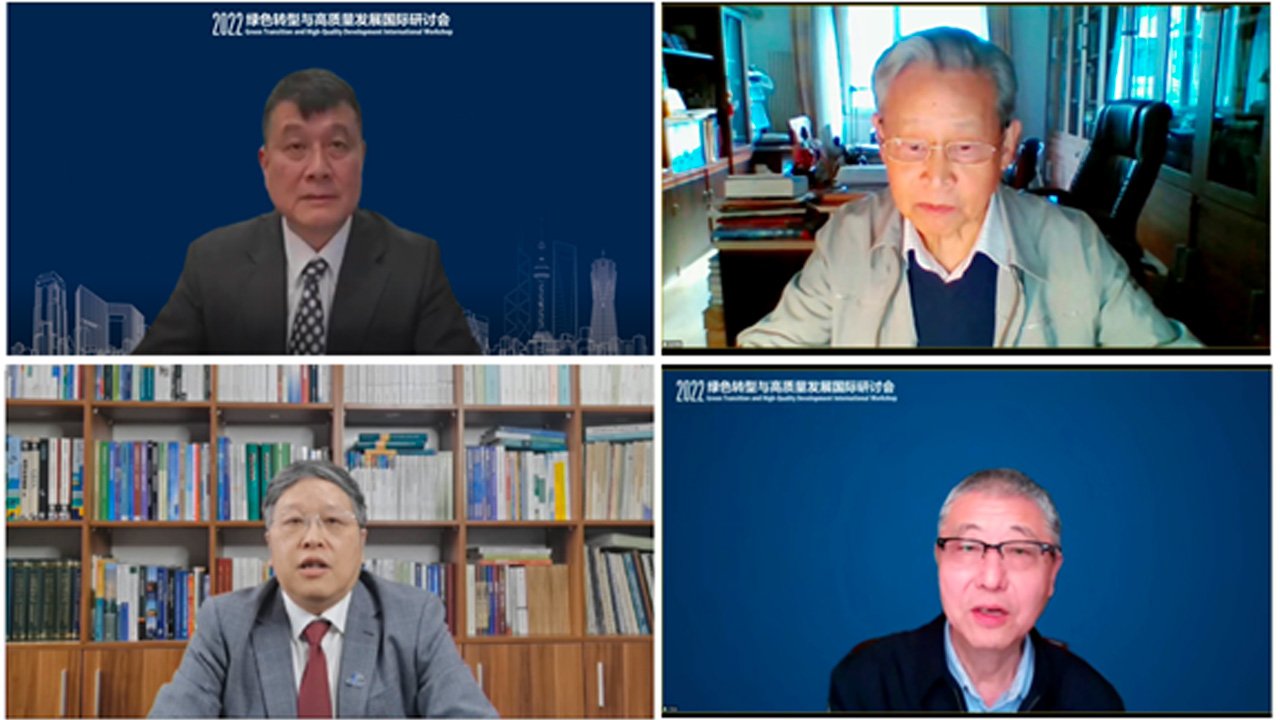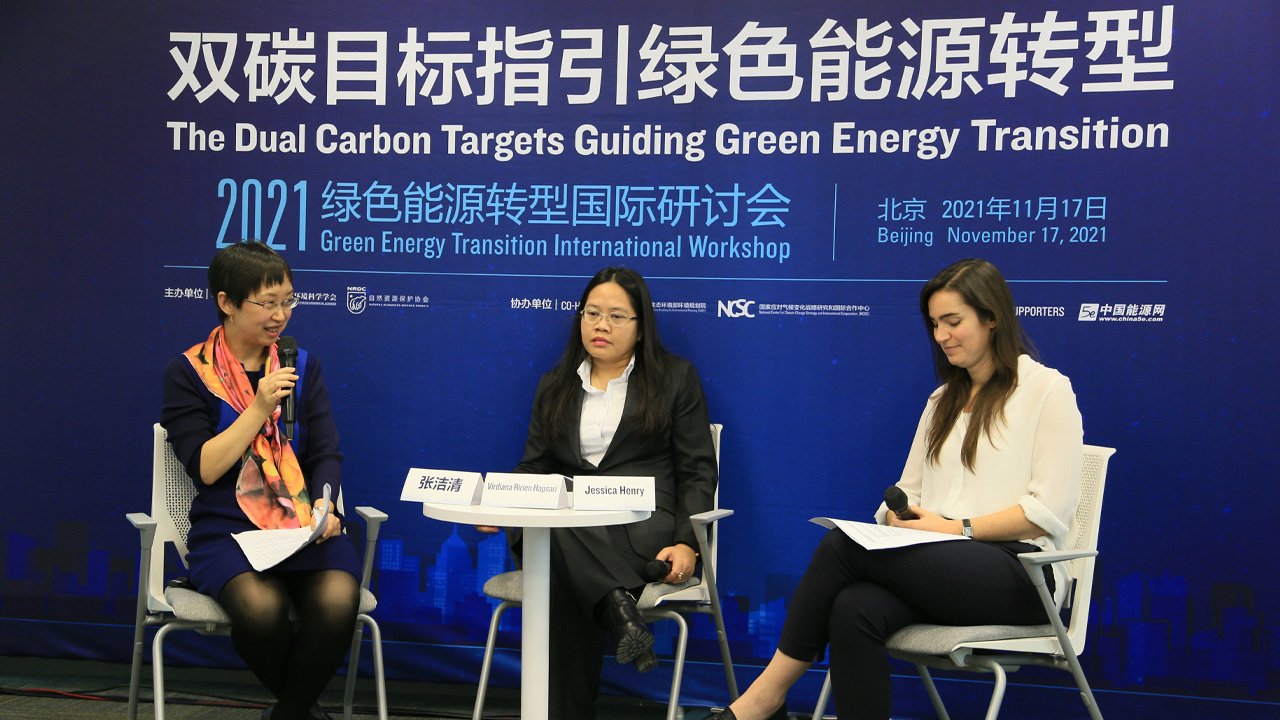会议背景
自2014年以来,为推动能源转型进程,NRDC与和中国环境科学学会和生态环境部环境规划院等单位合作,每年举办国际研讨会。会议邀请国内外政府部门、研究机构、企业、NGO的代表,探讨和分享经验和策略,并提出前瞻性的政策建议。
往届重要议题
国家、地方、行业和企业的能源转型
统筹控煤减污降碳
能源转型的国际经验
转型金融
如何在全球的绿色治理中发挥中国的领导力
往届嘉宾发言
联合国秘书长安东尼奥·古特雷斯:可持续的复苏意味着加快从煤炭和石油等化石燃料向可再生能源转型,创造更多的绿色工作机会,倡导取消对化石燃料的补贴,停止建设新的煤电厂。
国家应对气候变化战略研究和国际合作中心主任徐华清:为确保2030年前实现二氧化碳排放达峰目标,建议我国“十四五”期间应加大煤炭消费控制政策和措施力度,包括大力实施“煤改电”,重新审核已批煤电、煤化工项目,从严控制煤电、煤化工发展规模等。
国家能源局原副局长吴吟:我国的煤控工作应当减少用煤、高效用煤、禁烧散煤,重在减碳,重在煤外。而且,控煤不是目的,实际上要控制煤的污染物和温室气体排放,要有办法在用煤时将碳也利用起来。
中国工程院原副院长、院士杜祥琬:低碳转型与能源安全并行不悖。丰富的可再生能源资源是我国能源资源禀赋的重要组成部分。可再生能源资源的利用是我国自己可以掌控的,有利于能源体系的独立性和安全性。
中国工程院院士、生态环境部环境规划院院长王金南:因为煤炭消费总量的下降,城市PM2.5的浓度十年里下降了50%左右,二氧化硫浓度、单位GDP二氧化碳排放强度和重污染天数下降明显。所以控煤减污降碳从科学层面上是有道理的。
中电联专家委员会副主任委员、国家气候变化专家委员会委员王志轩:我们国家的能源资源禀赋决定了我们国家要从由可再生能源直接替代煤炭的路径,而不是由油气替代煤炭,再由可再生能源来替代油气。在这个过程中,要坚持“先立后破”的原则,这也是构建新型能源体系的核心要点。
媒体报道
国际研讨会得到了媒体的广泛报道,包括中国能源报、中国环境报、中国电力报、中国煤炭报、中国冶金报、中国工业报、中国科学报等。
往届嘉宾风采
 国际研讨会嘉宾合影(2023)
国际研讨会嘉宾合影(2023)
 2022年国际研讨会发言嘉宾 (左上:生态环境部应对气候变化司副司长蒋兆理 ;左下:中国工程院院士、中国环境科学学会理事长、生态环境部环境规划院院长王金南;右上:中国工程院院士、原副院长杜祥琬;右下:中国工程院院士、清华大学建筑节能研究中心主任江亿)
2022年国际研讨会发言嘉宾 (左上:生态环境部应对气候变化司副司长蒋兆理 ;左下:中国工程院院士、中国环境科学学会理事长、生态环境部环境规划院院长王金南;右上:中国工程院院士、原副院长杜祥琬;右下:中国工程院院士、清华大学建筑节能研究中心主任江亿)
 NRDC北京代表处首席代表张洁清主持圆桌讨论(2021)
NRDC北京代表处首席代表张洁清主持圆桌讨论(2021)
 联合国秘书长安东尼奥·古特雷斯视频发言(2020)
联合国秘书长安东尼奥·古特雷斯视频发言(2020)

